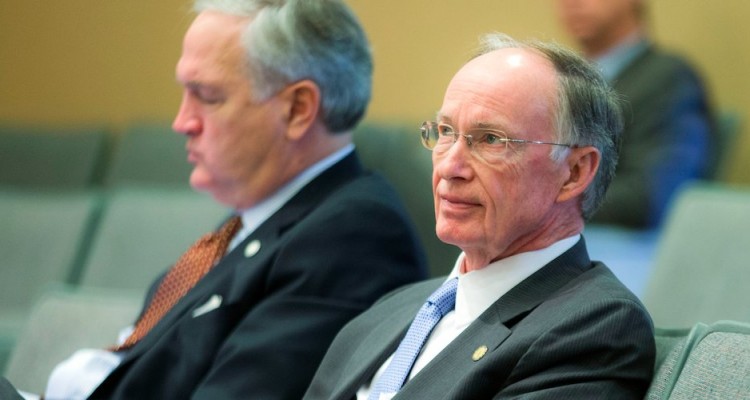Tuskegee mayor Johnny Ford has enlisted the U.S. Attorney’s office in a bid to clear the way for electronic bingo to resume operations at nearby Victoryland. U.S. Attorney George Beck is the top ranking federal lawyer in Montgomery and he wants Gov. Robert Bentley and Attorney General Luther Strange to voluntarily clear up some confusion by answering a few questions before he decides whether his office has reason to act further.
1. Does the state recognize a legal distinction between a slot machine and an electronic bingo machine?
2. Can the State furnish any document, expert opinion or Alabama Court Opinion that expressly declares the machines in question to be “slot” machines?
3. If the position of the State is that the machines in question are “slot” machines as opposed to “Electronic Bingo” machines, does the State intend to oppose the operation of such machines on tribal lands as well as non-tribal lands?
4. Does the State of Alabama consider either of the Memorandum of Understandings (marked as exhibits D and E in the letter) to be a Tribal-State compact, or negotiations of such a compact, that allows Class III gaming on tribal lands in Alabama?
(source: alabamanews.net)
The questions and supposed answers would seem to put the AG’s office in what they might call ‘ a pickle’ in Alabama. The AG’s office along with state police raided Victoryland casino and seized electronic gaming machines, calling them illegal slots. They then sold or otherwise transferred some of them to the Poarch Band of Creek Indians or someone else who put them into operations at one or more of the tribe’s casinos. The problem is, the tribe is operating under a Class II gaming compact which means they can only offer bingo, not slot machines. If the machines were slots on the Victoryland floor, they must surely still be slots on the Wind Creek casino floors.
Mayor Ford announced the letter on Thursday, but by the close of business on Friday neither the governors nor AG’s office had responded to media inquiries. The letter stems from conversations the U.S. Attorney and mayor had late last year. Mayor Ford contends that the civil rights of Macon county residents were violated when Victoryland was raided, forcing it to shut down and leave some 2,000 people without jobs. A circuit court judge ruled last year that the state was singling out Victoryland for enforcement while other similar commercial enterprises were allowed to operate. Judge Shashy gave the state 45 days to close the other facilities or return the machines, citing the equal protection clause in his ruling. The AG’s office appealed to the state Supreme Court who granted a temporary stay on that order until they could hear the case.
But Strange’s office may have more to worry about than returning cash and machines. His office entered into agreements (memorandums of understanding) with machine vendors in 2011, allowing them to harvest their machines and move them into tribal casinos, but not “illegal casinos” – those negotiations may have far reaching consequences.
Governor Bentley may have seen the storm clouds gathering in November when he signed an executive order stripping Strange’s office of the authority to enforce gambling laws, instead instructing him for the second time to leave action up to local authorities.
Although the Supreme Court has not made any movement on matters before them in the case, two bills moved through committees this week that would render most of issues moot, specifically sanctioning the gaming devices and codifying the governor’s executive order removing enforcement powers from the Attorney General’s office.


